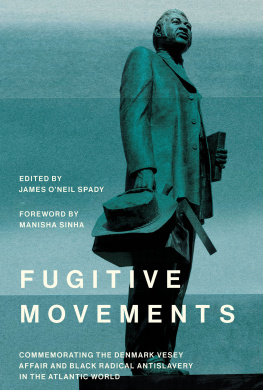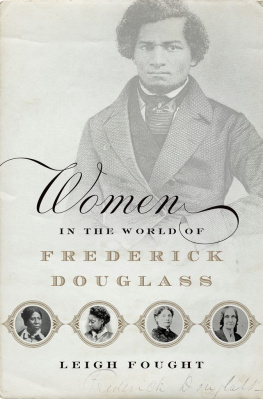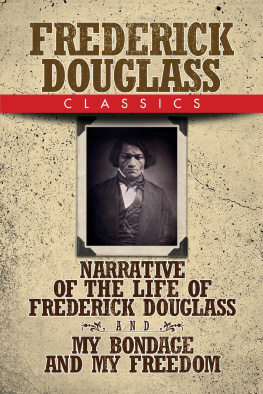ACKNOWLEDGMENTS
I have had the good fortune to receive assistance from a number of institutions and individuals over the many years that I have worked on this project. Although it is impossible to fully convey just how much their support has meant to me, I am thrilled to have this opportunity to finally thank them properly.
At the Graduate Center of the City University of New York, I received the best possible introduction to academic culture. Carol Berkin, Ann Fabian, Kathleen McCarthy, David Nasaw, and my wonderful advisor, Colin Palmer, all offered thoughtful and constructive advice on the dissertation, helped me to secure generous fellowships, including a Minority Access/Graduate Networking Presidents Dissertation Year Fellowship, and served as model mentors as I progressed through the various phases of graduate study. Members of my CUNY cohort, meanwhile, made the process a genuine pleasure. Collegial, generous, filled with boundless intellectual zeal and good humor, and always ready for late-night bowling and karaoke, Megan Elias, Kathleen Feeley, Terence Kissack, Cindy Lobel, Delia Mellis, and Peter Vellon all read portions of this manuscript in its various forms, invariably offering unselfish advice and candid criticism.
During my time as a faculty member in the history department at Union College I had the privilege of enjoying the fellowship and camaraderie of some terrific colleagues. I am especially grateful for the friendship and encouragement of Ed Pavlic and Stacey Barnum, Charles Batson, Deidre Hill Butler, Lorraine Morales Cox, John Cramsie, Andy Feffer, Richard Fox, Melinda Lawson, Joyce Madancy, Teresa Meade, and Andy Morris.
Librarians and staff at the New York Public Librarys Schomburg Center for Research in Black Culture, the Schaffer Library, and the Pollak Library assisted with the research for this project, going out of their way to oblige my numerous ILL requests and to track down documents. California State University, Fullerton, facilitated the completion of this project by providing me with several H&SS Faculty Summer Research and Writing Grants, a Junior Faculty Summer Stipend, and a Faculty Development Center Track Grant. CSUF American Studies Department administrators Carole Angus and Karla Arellano made book orders and travel a breeze.
The editors at the University of Georgia press have been fantastic. Project editor John Joerschke and copyeditor Ellen D. Goldlust-Gingrich have been a pleasure to work with. They whipped the book into shape and saved me from making some embarrassing errors. Acquisitions editor Derek Krissoff, in particular, remained enthusiastic about the project over the years and exhibited extraordinary patience as I slowly moved toward the finish line. I am also grateful to the two anonymous readers who reviewed the book in manuscript form, offering detailed notes and suggestions on how to tighten and pull together the threads of the narrative. Their input has improved the book immeasurably.
The book also benefitted greatly from the thoughtful questions I received from chairs, commentators, and audience members at several academic conferences. I would especially like to thank Elsa Barkley Brown, John Bezs-Selfa, Darlene Clark Hine, Graham Hodges, Kate Masur, W. Caleb McDaniel, Richard Newman, Manisha Sinha, James Brewer Stewart, and Julie Winch. Although they did not all necessarily agree with my interpretations, their insightful observations helped me to refine my ideas and sharpen my arguments and take into account possibilities I otherwise might not have considered.
It is impossible to say what a delight it is to be a part of the extraordinary Cal State Fullerton community, where I now make my home. I am daily inspired by our students and filled with admiration for our faculty: men and women who approach scholarship and teaching with extraordinary passion and enthusiasm, even in the face of staggering budget cuts and uncertainty about what the future holds for public education. My colleagues in the CSUF American Studies DepartmentAllan Axelrad, Jesse Battan, Adam Golub, Wayne Hobson, John Ibson, Carrie Lane, Elaine Lewinnek, Karen Lystra, Mike Steiner, Terri Snyder, and Pam Steinlehave created an environment that feels more like a family than a place of employment. I continue to be amazed that I have had the good fortune to find myself in such an intellectually vibrant and warm community. I would especially like to thank Leila Scissors Zenderland and my colleagues Stephen J. Mexal and Benjamin Cawthra for helping me to get unstuck at critical moments in the writing process.
Finally, I owe a number of debts that can never be repaid. Claire Potter, my undergraduate advisor at Wesleyan University, served as my very first model for the academic life and encouraged me to pursue graduate study. My dissertation advisor, Colin Palmer, gave me the best advice: no matter how people respond to your work, always own your ideas. My parents, Eugene and Carolyn Ball, taught me to love history, music, and literature and to value education. They also, along with my sister Stephanie, maintained their good humor despite having to answer countless questions from friends curious about the status of Ericas book. Ultimately, however, I owe the greatest debt to Brian Michael Norton. He has read nearly every version of this projectfrom drafts of the dissertation proposal to the final proofsover the past decade. He is, and always will be, my best everything: friend, editor, collaborator, critic, partnerin-crime. Together with our dog Abby, every day feels like a joyous adventure, and I cant wait to see where we go next.
My grandparents, to whom this book is dedicated, would be surprised, I suspect, to learn that their granddaughter had written a book about many of their most cherished ideals. Although they are not here to see the final product, I hope that they would be pleased with the result.
RACE IN THE ATLANTIC WORLD, 17001900
The Hanging of Anglique: The Untold Story of Canadian Slavery and the Burning of Old Montral
by Afua Cooper
Christian Ritual and the Creation of British Slave Societies, 16501780
by Nicholas M. Beasley
African American Life in the Georgia Lowcountry: The Atlantic World and the Gullah Geechee
edited by Philip Morgan
The Horrible Gift of Freedom: Atlantic Slavery and the Representation of Emancipation
by Marcus Wood
The Life and Letters of Philip Quaque, the First African Anglican Missionary edited by Vincent Carretta and Ty M. Reese
In Search of Brightest Africa: Reimagining the Dark Continent in American Culture, 18841936
by Jeannette Eileen Jones
Contentious Liberties: American Abolitionists in Post-Emancipation Jamaica, 18341866
by Gale L. Kenny
We Are the Revolutionists: German-Speaking Immigrants and American Abolitionists after 1848
by Mischa Honeck
The American Dreams of John B. Prentis, Slave Trader
by Kari J. Winter
Missing Links: The African and American Worlds of R. L. Garner, Primate Collector
by Jeremy Rich
Almost Free: A Story about Family and Race in Antebellum Virginia
by Eva Sheppard Wolf
To Live an Antislavery Life: Personal Politics and the Antebellum Black Middle Class
by Erica L. Ball
CHAPTER ONE
African American Advice Literature and Black Middle-Class Self-Fashioning
But why should I repine; are we not to sacrifice rather than indulge self? Born as we are to the stern performance of duty rather than the pursuit of happiness.
Charlotte Forten (1855)
In the decades after the American Revolution and the founding of the new nation, northern states began abolishing the practice of racial slavery. Beginning with the state of Vermont, which outlawed slavery in its 1777 constitution; Pennsylvania, which enacted gradual emancipation legislation in 1780; and Massachusetts, whose supreme court ruled in 1783 that slavery violated the state constitution, the institution slowly disappeared from the North, becoming instead a sectional phenomenon exclusive to the states of the Upper and Deep South.





